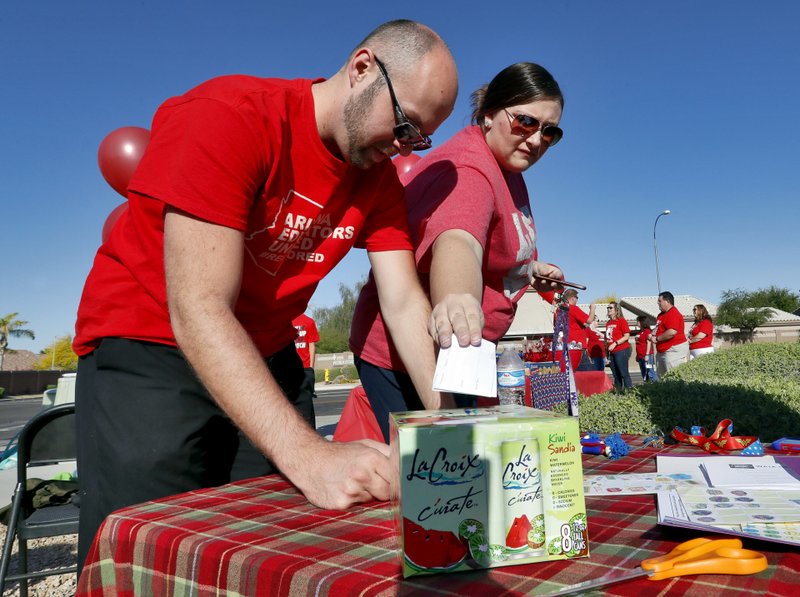PHOENIX -- The potential for Arizona teachers to launch a first-ever statewide strike has school districts, parents and education officials making contingency plans despite a lack of clarity about what may happen and when.
A grass-roots group overseeing a vote on whether teachers should walk off the job was expected to announce the results Thursday night. The vote follows about six weeks of mounting protests to demand increased funding for public schools and an offer by Republican Gov. Doug Ducey to boost teacher pay by 20 percent.
Parents and communities already are making plans for child care, though they don't know if a walkout is a certainty, said Beth Simek, president of the influential Arizona PTA. Some stay-at-home parents are stepping up to watch children so other parents can go to work, she said.
Local parent-teacher associations also are putting together food boxes for kids who rely on free breakfast and lunch at school.
"There's been a lot of mobilization by the community to prepare," Simek said.
More than 1 million students in Arizona go to public school in more than 200 districts, which have varying walkout plans. The state's largest, Mesa Public Schools in suburban Phoenix, would close and hourly staffers would not be paid, Superintendent Michael Cowan has said.
The Dysart School District west of Phoenix would "make every effort" to avoid closing schools," but they would have to shut down if too few staff members show up, Superintendent Gail Pletnick has told parents.
The Scottsdale Unified School District was finalizing information, spokeswoman Erin Helm said Thursday.
If teachers vote in favor of walking off the job, it's unclear when it could happen.
The grass-roots organizing group Arizona Educators United has reserved space at the state Capitol on Friday and for four of five days next week for rallies as it gets ready for a possible walkout.
"We are preparing for all options right now," group organizer Noah Karvelis said this week.
The potential for the first statewide walkout is complicated by the possible fallout in this right-to-work state, where unions do not collectively bargain with school districts and representation is not mandatory.
The Arizona Education Association, which supports the grass-roots campaign and is helping announce the vote results, has warned its 20,000 members about a 1971 Arizona attorney general opinion saying a statewide strike would be illegal under common law and participants could lose their teaching credentials.
Arizona is one of several Republican-dominant states where teachers have demanded higher pay this year. The movement started in West Virginia, where a strike garnered a raise, and spread to Oklahoma, Kentucky and most recently Colorado.
The vote in Arizona comes after Ducey's pay raise plan didn't address other demands, including more overall school funding. Some walkout supporters say they want to send a message that other workers, such as bus drivers and receptionists, should get raises, too.
His proposal has received support, but others are concerned about finding the money to cover its roughly $650 million cost when fully implemented.
Republican state House Speaker J.D. Mesnard said lawmakers widely support a 20 percent raise, though there's no agreement on how to fund it.
"The broad consensus is, 'We want to see a pay raise,'" he said. "Right now, it's a lot of number crunching, a lot of discussions ... it's all centered around, how do we make this a reality?"
National on 04/21/2018